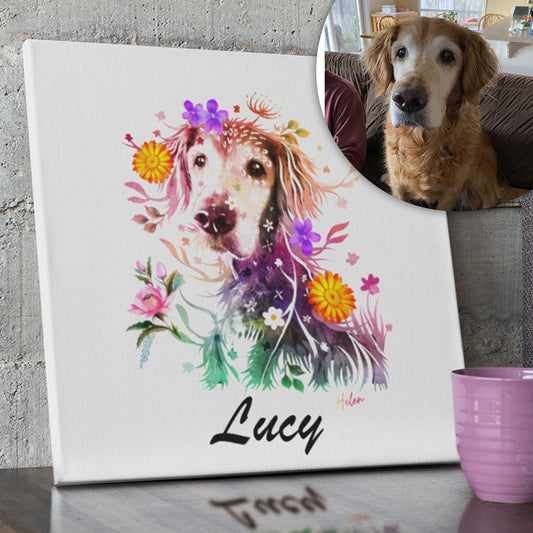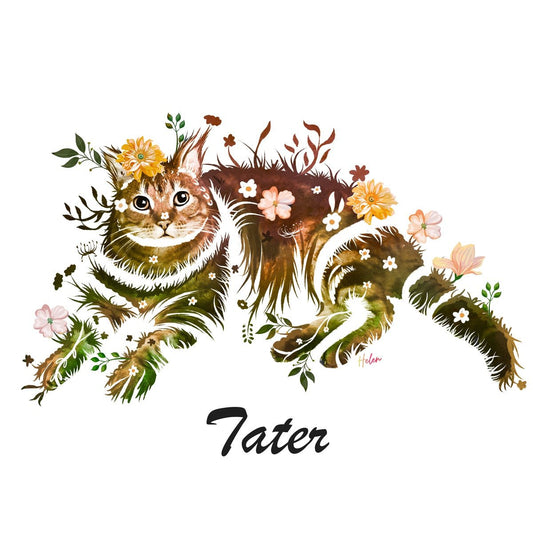"What are the most common types of dog and cat treats on the market?"
When it comes to treating our pets, there are plenty of options available. Some of the most common types of dog and cat treats on the market include jerky treats, soft treats, biscuits and cookies, freeze-dried treats, and dental treats.
Jerky treats are made from thin strips of dried meat and are a favorite among pets due to their chewy texture and savory flavor. Soft treats are a great option for pets with dental issues or who prefer a softer snack and can be made from a variety of ingredients.
Biscuits and cookies are a popular choice for pets with a sweet tooth and can be flavored with everything from peanut butter to pumpkin. Freeze-dried treats are made by removing the moisture from fresh ingredients and can be a great option for pets with food sensitivities.
Dental treats are designed to help keep your pet's teeth and gums healthy and are often made from hard, abrasive materials.
"How can I choose healthy, natural treats for my pet?"
When it comes to choosing treats for your pet, it's important to consider the ingredients and sourcing of the product. Look for treats made with whole, natural ingredients and avoid products with long lists of additives and preservatives. It can also be helpful to choose treats made with a single protein source, as this can be easier for pets with food sensitivities to digest.
Look for treats made in the USA or other countries with strict regulations on pet food production. It can also be a good idea to choose treats from trusted brands with a reputation for producing high-quality products.
"Are there any ingredients or brands I should avoid when shopping for treats?"
It's a good idea to avoid treats made with low-quality or questionable ingredients, such as meat by-products or animal meal. These ingredients are often made from leftovers and can be difficult for pets to digest. It's also a good idea to avoid treats made with artificial preservatives, flavors, and colors, as these additives can be harmful to pets.
It's also important to be cautious of treats made in countries with less stringent regulations on pet food production, such as China. In the past, there have been instances of tainted or contaminated treats coming from this country, so it's best to avoid these products if possible.
"How do I know if my pet has a treat allergy or sensitivity?"
If your pet has a treat allergy or sensitivity, they may experience symptoms such as vomiting, diarrhea, itchiness, or difficulty breathing after consuming the treat. If you suspect that your pet may have a treat allergy or sensitivity, it's important to consult with your veterinarian. Your vet can help you identify the specific allergen and provide guidance on how to manage your pet's diet to avoid any adverse reactions.
"What are some alternatives to store-bought treats that I can offer my pet?"
There are plenty of options for treats that you can make at home for your pet. Some ideas include homemade jerky treats made with lean protein sources such as chicken or turkey, freeze-dried fruit or vegetables, or homemade soft treats made with ingredients such as cooked sweet potato or rolled oats.
You can also offer your pet small pieces of cooked, unseasoned meat or vegetables as a treat. Just be sure to avoid giving your pet any foods that are toxic or unhealthy, such as onions, garlic, and chocolate.
"How much is too much when it comes to treating my pet?"
Treats should make up only a small portion of your pet's overall diet, typically no more than 10%. It's important to balance treat intake with your pet's caloric needs and to ensure that they are receiving a nutritionally balanced diet.
Overfeeding treats can lead to obesity, which can increase the risk of health problems such as diabetes and heart disease. It's also important to consider the size and activity level of your pet when determining how many treats to feed. Consult with your veterinarian for guidance on how much is appropriate for your specific pet.
Are you wondering how many treats are too many for your furry friend? It's important to balance treat intake with your pet's overall health and nutrition. Check out this article for more information on finding the right balance:
https://www.bestlife4pets.com/blogs/pet-blog-tips/how-many-pet-treats-are-too-many
"How can I balance giving treats as rewards with maintaining my pet's overall health and nutrition?"
While treats can be a great way to reward and bond with your pet, it's important to ensure that they don't consume too many treats and jeopardize their overall health and nutrition. One way to do this is to use treats sparingly and only as a reward for good behavior, rather than giving them out freely.
You can also choose healthier treat options, such as those made with whole, natural ingredients and minimal additives. It's also important to ensure that treats are fed in addition to, rather than in place of, a balanced diet.
"Can treats be used as part of a weight loss plan for my overweight pet?"
Treats can potentially be incorporated into a weight loss plan for an overweight pet, but it's important to do so carefully. Choose low-calorie treats and be mindful of portion sizes to avoid overfeeding. It's also important to ensure that any treats fed as part of a weight loss plan are in addition to, rather than in place of, a balanced diet. Consult with your veterinarian for guidance on creating a weight loss plan for your pet.
"How can I handle situations where others want to give treats to my pet?"
It can be difficult to navigate situations where others want to give treats to your pet, especially if you are trying to maintain a specific diet or feeding schedule. One way to handle this is to be proactive and inform others of your pet's dietary needs and restrictions.
You can also bring your own treats with you when you are out and about with your pet, or offer a healthy alternative such as a piece of fruit or vegetable. If someone insists on giving your pet a treat, it may be helpful to politely decline and explain your reasoning. Consider also to take the treat home and incorporate it into your pet's diet in a controlled manner. It's important to remember that while it's nice to be considerate of others, the health and well-being of your pet should be your top priority.






